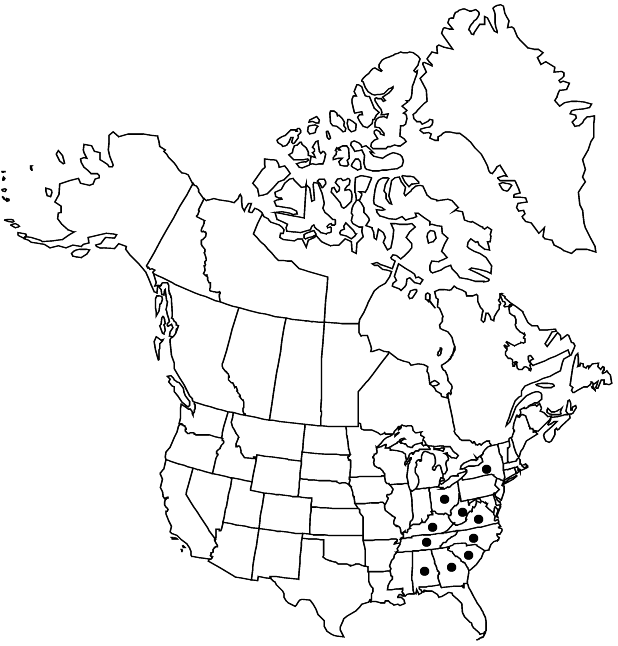Difference between revisions of "Eubotrys recurva"
in N. L. Britton and A. Brown, Ill. Fl. N. U.S. ed. 2, 2: 688. 1913 ,.
FNA>Volume Importer |
FNA>Volume Importer |
||
| Line 7: | Line 7: | ||
}} | }} | ||
|common_names=Deciduous mountain fetterbush;red-twig doghobble | |common_names=Deciduous mountain fetterbush;red-twig doghobble | ||
| − | |basionyms={{Treatment/ID/ | + | |basionyms={{Treatment/ID/Basionym |
|name=Andromeda recurva | |name=Andromeda recurva | ||
|authority=Buckley | |authority=Buckley | ||
| + | |publication_title=Amer. J. Sci. Arts | ||
| + | |publication_place=45: 172. 1843 | ||
}} | }} | ||
|synonyms={{Treatment/ID/Synonym | |synonyms={{Treatment/ID/Synonym | ||
| Line 53: | Line 55: | ||
|publication year= | |publication year= | ||
|special status= | |special status= | ||
| − | |source xml=https://jpend@bitbucket.org/aafc-mbb/fna-data-curation.git/src/ | + | |source xml=https://jpend@bitbucket.org/aafc-mbb/fna-data-curation.git/src/f6b125a955440c0872999024f038d74684f65921/coarse_grained_fna_xml/V8/V8_998.xml |
|subfamily=Ericaceae subfam. Vaccinioideae | |subfamily=Ericaceae subfam. Vaccinioideae | ||
|genus=Eubotrys | |genus=Eubotrys | ||
Revision as of 20:31, 24 September 2019
Stems erect, 1–4 m, branches spreading. Leaves: petiole 1–3 mm; blade 3–8 cm, surfaces pilose on major veins abaxially. Inflorescences spreading or ascending, secund, curved or recurved, 5–12 cm; bracts ± deciduous, ovate-deltate, 1–1.7 mm. Flowers: calyx campanulate, sepals ovate, 2.5–3 mm, apex acute; corolla white to pale pink, 7–9 mm, lobes recurved, glabrous; stamens 3–4 mm; anthers 2-awned, ca. 1.5 mm, thecae divergent distally; ovary glabrous. Capsules 3–5 mm wide. Seeds winged, oblanceoloid, flat, 1–1.3 mm.
Phenology: Flowering mid spring.
Habitat: Damp woods in mountains, heath balds, granitic domes, bogs
Elevation: 100-1200(-1500) m
Distribution

Ala., Ga., Ky., N.Y., N.C., Ohio, S.C., Tenn., Va., W.Va.
Discussion
The occurrence of Eubotrys recurva in New York state, in mixed oak woods on Long Island, may represent naturalized plants, rather than a native population. Records from Ohio may also represent escaped plants.
Selected References
None.